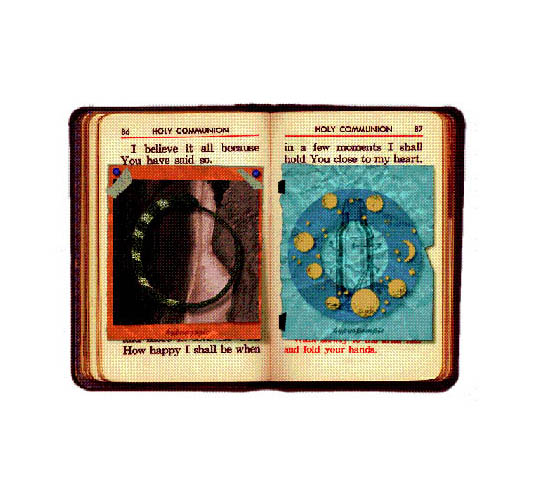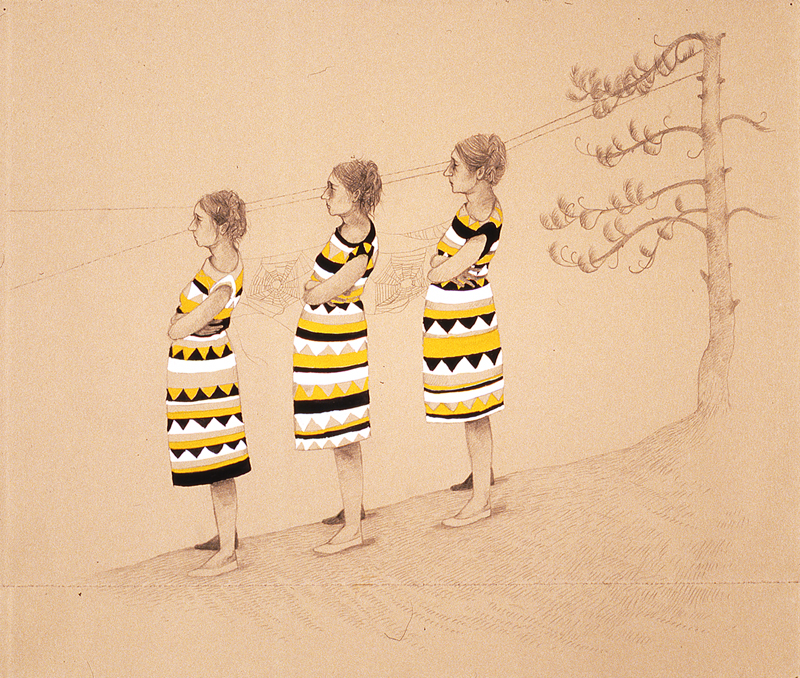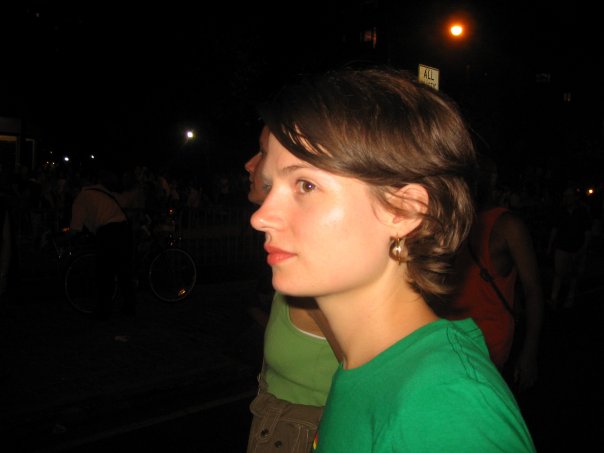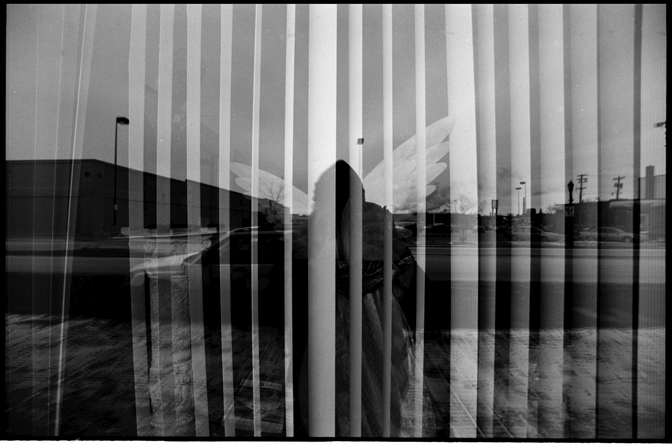mnLIT Original: “Prayers for the Dead”
"Prayers for the Dead" is a newly commissioned story by one of our 2009 miniStories grand prize-winners, Kris Woll. Each of these new pieces is accompanied by a curated selection of work drawn from mnartists.org's vast database of artists.






HER DEAD BODY LAY TWISTED TOWARD THE WALL. Her skin, onion thin, draped over the high, bold cheekbones she passed to me through my father. Deep ditches cut through her square jaw toward her lips — evidence of respirators recently removed. Her white hair matted and uncurled. The week spent dying made her frail and thin, as dying can do. Her mouth lay open, all breath — both natural and forced — now gone. Her eyes did not quite shut after a last glimpse of that orange room.
She moved out quietly. Uncle Denny, seated at her feet in a sticky vinyl chair on his turn to hold watch, didn’t hear a thing, didn’t know to look up from The Sioux City Journal to witness her passing.
It must have happened as I parked the car on the burning asphalt down the hill from Mercy Medical Center, a cavernous complex of small windows and fragile bodies, or, as I crowded into an elevator filled with strangers carrying brightly colored balloons and exuberant flowers. I stood quietly in my corner, clutching my rosary until the doors opened on the third floor, to a blue waiting room and a statue of the Blessed Virgin. My cell phone rang and in a tinny voice — we had a bad connection — my mother announced, She’s gone. I arrived only in time to mourn.
I try to remember my grandma as she looked on Christmas Eve, months earlier, standing atop her entryway stairs with a wide, red smile and wet eyes, waving bye-bye as we shuffled out the door: there in her own home, standing straight with the help of a cane, her hair curled, her blood moving through her veins, the smell of cinnamon rolls and history swirling through her floral-papered kitchen. I rushed away from that goodbye, wiping her gooey kiss from my cheek, never considering death.
I try to forget that I never asked about her young widowhood, with her house full with five children and her belly swollen with another, after leukemia took her husband; that I really meant to call on her birthday that year; that I arrived too late to say good-bye.
The orange hospital room filled as family arrived. A priest shuffled in. We gathered there with her body, moving our fingers bead to bead.
Glory be to the Father, and to the Son, and to the Holy Spirit.
Her husband died across the street in the old wing; he died after she kissed him goodnight, while she drove 26 miles back to their home, their family. She walked in the door, the phone rang: a nurse (or was it a nun?) to tell her, Dolores, your husband has passed away. I wonder what she did when she received this call, tired from the day, from that drive, from those years of his illness. She must have wished she had stayed at the hospital a bit longer. She might have screamed or cried or — for the sake of the children, and because it was 1957 — perhaps she swallowed that call like a bitter pill and quietly told them the news.
They buried him on a cold October Monday across the street from their house, just up from St. Joe’s, in the cemetery where she now lays by his side, amidst so many branches of my giant family tree.
Eternal rest grant unto her, O Lord, and let perpetual light shine upon her.
I meant to ask her questions, to listen to her stories, to try to say something that meant thank you and goodbye. Instead I joined in reciting the prayers for the dead.
May all the souls of the faithful departed, through the mercy of God, rest in peace, Amen.
Before I left to drive the long, flat road back toward my home, I touched the hardness of her hand, knowing the gesture comforted only me, imperfectly.
______________________________________________________
About the author: Kris Woll has lived and worked in New England, New York City and, now, Minneapolis since leaving her prairie hometown. She has an MA in history and is interested the pasts we’ve lived, inherited, and imagined. She is a 2009 mnartists.org mnLIT/miniStories Grand Prize-winner, and her work has appeared in Minnesota, MinnPost, Prairie Poetry, and (forthcoming) Edible Twin Cities.
Don’t miss the related slideshow of visual art by Minnesota artists at the top of the page. Each work was handpicked specifically to accompany this story.
______________________________________________________
mnartists.org is a joint project of the Walker Art Center and the McKnight Foundation
Membership on mnartists.org is FREE. Find step-by-step instructions for how to join and how to use the free resources available on the site. If you need assistance, contact Jehra Patrick at info@mnartists.org. Any Minnesota resident is eligible to participate in mnartists.org’s mnLIT competitions for poetry and fiction; there are no entry fees, and writers at all levels of skill and experience are welcome to enter work for consideration by a revolving panel of established authors and publishing professionals in mnLIT’s blind adjudication process.
______________________________________________________


